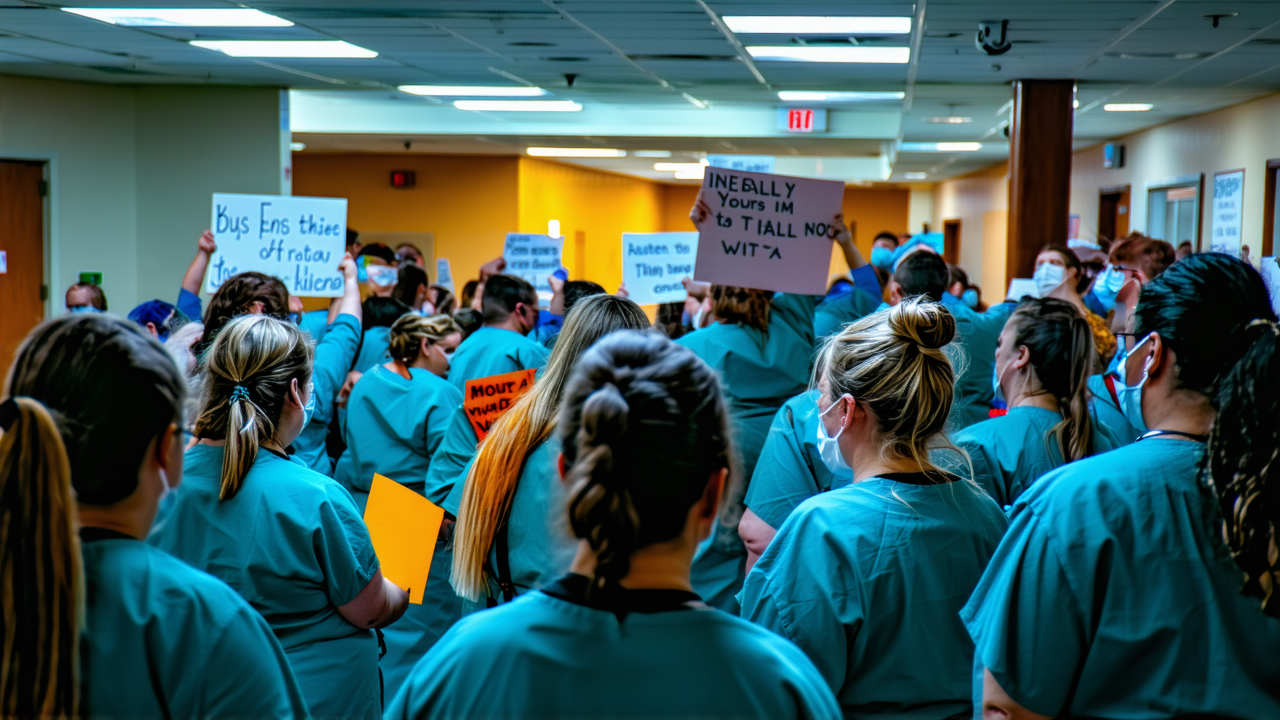Nurses' Strike Disrupts 4,300 Patient Appointments and Procedures
Nurses' Strike Disrupts 4,300 Patient Appointments and Procedures
More than 36,000 nurses, midwives, and healthcare assistants across the country staged a 24-hour strike on Wednesday, marking one of the largest walkouts in recent history. The action, driven by concerns over staffing levels and patient safety, led to the postponement of approximately 4,300 patient appointments and procedures nationwide.
Health NZ, the country’s health authority, has confirmed that it is currently working to rebook these appointments as soon as possible. However, the impact of the strike varied significantly across different hospitals, depending on the level of acute demand and the number of nurses who participated in the strike.
Dr. Dale Bramley, CEO of Health NZ, acknowledged the disruption but emphasized that hospitals managed to operate without serious incidents, thanks to the support of non-striking staff and volunteers. “Despite heavy winter occupancy in some areas, our hospitals got through the strike without any serious incidents, which is a testament to all those staff and volunteers who provided support,” he said.
Bramley also highlighted the extensive planning that went into managing the strike and the significant work still ahead. “While the strike lasted 24 hours, an enormous amount of planning work went on beforehand and there is a lot more work to do now the strike has finished,” he added.
The strike was a direct response to nurses’ concerns over unsafe staffing levels, which they claim have not been adequately addressed in the collective agreement negotiations. The Nurses Organisation has repeatedly called for a commitment to safe staffing ratios, which they argue is essential for both patient care and staff well-being.
Despite the disruption, Health NZ reiterated its commitment to negotiating a deal with the Nurses Organisation. Bramley stated that the organization remains “completely committed to patient and staff safety.” He also noted that the number of nurses working for Health NZ has increased significantly, with a 3,000 increase in full-time equivalent (FTE) nursing staff over the past two years.
The strike has reignited the debate around healthcare staffing and the pressures faced by frontline workers. As the country continues to grapple with rising healthcare demands and staffing shortages, the outcome of the current negotiations will be closely watched by both patients and healthcare professionals alike.
